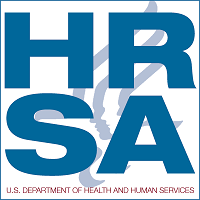 Through Community Health Centers
Through Community Health Centers
Awards will enhance telehealth, digital patient tools, and health information technology to support underserved communities.
The Department of Health and Human Services (HHS) (@HHSGov), through the Health Resources and Services Administration (HRSA) (@HRSAgov), awarded nearly $55 million to 29 HRSA-funded health centers to increase health care access and quality for underserved populations through virtual care such as telehealth, remote patient monitoring, digital patient tools, and health information technology platforms. This funding builds on over $7.3 billion in American Rescue Plan funding invested in community health centers over the past year to help mitigate the impact of COVID-19.
“Virtual care has been a game-changer for patients, especially during the pandemic,” said HHS Secretary Xavier Becerra. “This funding will help health centers leverage the latest technology and innovations to expand access to quality primary care for underserved communities. Today’s announcement reflects the Biden-Harris Administration’s commitment to advancing health equity and putting essential health care within reach for all Americans.”
In response to the COVID-19 pandemic, health centers have quickly expanded their use of virtual care to maintain access to essential primary care services. They reported significant growth in the number of virtual visits from 478,333 in 2019 to 28,550,608 in 2020, a remarkable 6,000 percent increase. In total, the number of health centers offering virtual visits grew from 592 in 2019 to 1,362 in 2022, an increase of 130 percent. These new awards will enable health centers to sustain an expanded level of virtual care and identify and implement new digital strategies.
“Today’s awards will help ensure that new ways to deliver primary care are reaching the communities that need it most,” said HRSA Administrator Carole Johnson. “Our funding will help health centers continue to expand their virtual work while maintaining their vital in-person services in communities across the country.”
The more than 1,400 HRSA-supported health centers in this country serve as a national source of primary care for our at-risk communities. They are community-based and patient-directed organizations that deliver affordable, accessible, and high-quality medical, dental, and behavioral health services to nearly 29 million patients each year. As of late January, overall health centers have delivered over 19.2 million vaccine doses, with 68 percent going to racial or ethnic minority patients. More than 90 percent of health center patients are individuals or families living at or below 200 percent of the Federal Poverty Guidelines (about $55,000 per year for a family of four in most states) and approximately 62 percent are racial/ethnic minorities.
